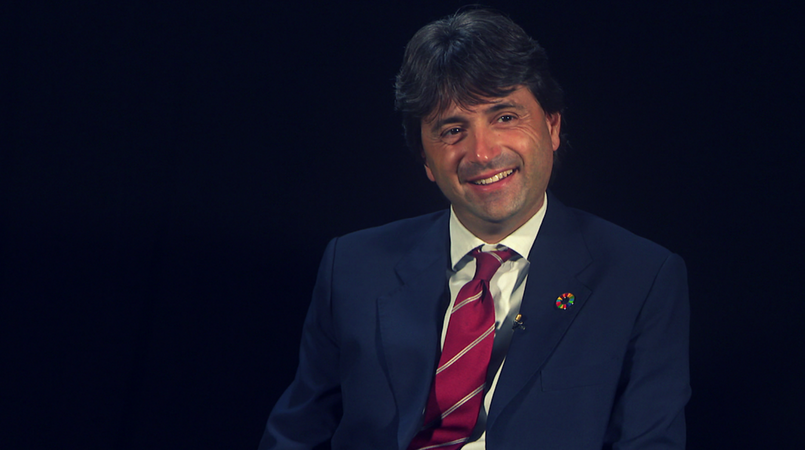
Five months have passed since the United Nations Resident Coordinator for PNG, Gianluca Rampolla, officially took up his post.
The subject of helping PNG realise the Sustainable Development Goals, as well as national development and peacebuilding priorities, were discussed during his February 7th meeting with PNG’s Minister for Foreign Affairs and Trade.
After presenting his credentials on February 7th this year, the UN Resident Coordinator had to immediately attend to the Kadovar situation; the sleeping volcano had initially erupted in January, displacing thousands of islanders.
Rampolla and his team were still attending to the Kadovar relief efforts when a massive 7.5 magnitude earthquake hit the provinces of Southern Highlands, Hela and Western.
“Since the 26th of February we have been invested heavily in:
- Supporting the national local authorities coordinating the response;
- Supporting the populations affected by delivering – ourselves directly – relief and assistance; and,
- Already starting to consider how to ensure that if, and god willing this is not going to happen again, the country is going to experience a disaster of a similar magnitude, we would not be caught.”
Rampolla said mechanisms, capacities and instruments will be put in place to help the Government and its partners to promptly respond if PNG is faced with another natural phenomenon.
During the distribution of relief supplies to the quake impacted areas of the Highlands region, the UN team encountered a number of challenges.
“The challenges were, from a system perspective as the United Nations, we are not configured to be able to respond rapidly to a disaster of this magnitude. But I think that as United Nations, we’ve been fast enough to adjust to the needs and within four days, we had deployed a search capacity to complement the resources that the Government had put,” he stated.
Using global mechanisms, Rampolla and his team quickly accessed US$10 million to mobilise shelter, food and medicine for the survivors.
“There are communities that are reachable only by helicopter. And because of our distribution plans for food, we’ve been able to travel to areas in Bosavi where you could take 5 days to get to just walking.
“There is one part of the areas affected that is very complicated for us to get to, and that is the areas close to Tari and Komo because of security challenges.
“There are ongoing law intensity conflicts that go on there and it is very difficult for us to get in and we are not advised by the PNG Defence Force to actually travel there.”
Rampolla admitted that from a developmental perspective, some of the challenges had only been worsened by the earthquake.
“We know very well that the Highlands are, in certain parts of it, structurally food insecure; they were the most affected by El Nino two years ago.
“So the fact that as we moved there to respond to the earthquake, we found children that were malnourished or stunting. That was not because of the earthquake. They were malnourished before the earthquake.”
Rampolla said there is work for the Government, with the support of its partners, to ensure that reconstruction at the impacted areas of Southern Highlands, Hela and Western is steady and fast.
“And we get to use the opportunity of having to respond to an earthquake to build out better than it was before.”
He further acknowledged Australia and New Zealand, including the extractive industries, for being critical partners in the entire operation.
